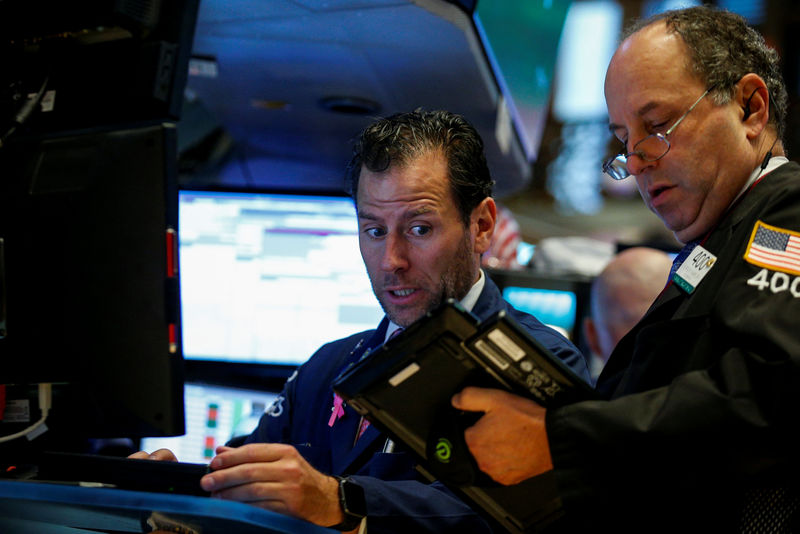By David Randall
NEW YORK (Reuters) - The Trump administration's plan to cut corporate taxes may add more fuel to the already hot rally in the shares of automation companies.
Fund managers from Columbia Threadneedle Investments, Hodges Capital and Hood Capital say that they expect that companies will use part of their tax savings to invest in high-cost machines that will allow them to reduce labor costs over time.
That would be a boon for companies such as Cognex Corp (O:CGNX), which makes so-called machine vision systems that are used to quickly sort and fill orders in e-commerce warehouses, and Faro Technologies Inc (O:FARO), which makes three-dimensional measuring tools that can help lower labor costs on aerospace assembly lines. Cognex shares touched a 52-week high on Friday, while Faro shares at $38.20 were closing in on their year-high of $40.60 reached in August.
"Scarcity of capital is the thing that keeps companies from spending money when it makes sense to do so. Investing in automation would be something that pays for itself quickly," said Matt Litfin, a portfolio manager of the $4.8-billion Columbia Acorn (O:LACAX) fund, who owns shares of Cognex. Shares of the company are up 80 percent year-to-date.
Automation companies have rallied overall this year as corporate America looks for ways to maintain margins and productivity at a time when wages are rising and unemployment is low.
The $1.4 billion Robo Global Robotics and Automation Index ETF (O:ROBO), which includes a mix of large-cap companies such as Rockwell Automation and Intuitive Surgical (NASDAQ:ISRG), is up over 35 percent for the year to date, nearly triple the 13.5-percent gain in the broad S&P 500 index.
Numerous fund holdings are up over 90 percent for the year to date, including drone manufacturer AeroVironment Inc (O:AVAV), gear manufacturer Harmonic Drive Systems Inc (T:6324), and laser company IPG Photonics Corp (O:IPGP).
Large-cap automation companies, such as Rockwell Automation Inc (N:ROK) and Emerson Electric Co (N:EMR), have also posted solid returns so far this year, though smaller-cap companies have seen larger share price gains overall.
The Robo ETF has posted positive inflows every week since President Donald Trump's November election, partly due to investor anticipation of a corporate tax cut. Investors have sent $461 million into the fund since early August, when the Trump administration began publicly discussing its plans to cut the top corporate tax rates to 20 percent, from 35 percent.
Prominent Republican senators such as Bob Corker and Rand Paul have criticized the Trump administration's plan for its potential to increase the federal deficit, leaving its passage far from certain. Yet fund managers say that they see gains in automation companies continuing regardless of whether a tax bill passes.
"Even eight years after the financial crisis, companies are still very focused on their bottom lines and maintaining efficiency and productivity as much as possible," said Eric Marshall, a portfolio manager of the $743-million Hodges Small Cap fund.
Middleby Corp (O:MIDD), which makes smart ovens and other kitchen equipment used in restaurant chains such as Panera Bread (NASDAQ:PNRA), will likely benefit as companies look for ways to reduce labor costs as more states raise the minimum wage, he said.
Shares of Middleby are flat for the year, in part due to slow sales of its Viking line of high-end ovens after the company had to recall some freestanding gas ranges that turned on by themselves with customers unable to turn them off. Hodges said that despite the overhang, the company looks poised to continue to grow as restaurants expand and high real-estate prices prompt more homeowners to upgrade their kitchens.

"This is a company that's got some real secular trends going for it, and a corporate tax cut will only accelerate those trends," he said.